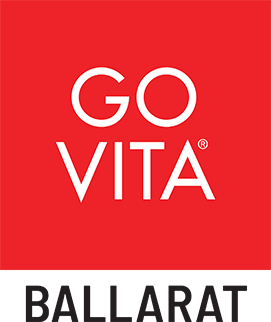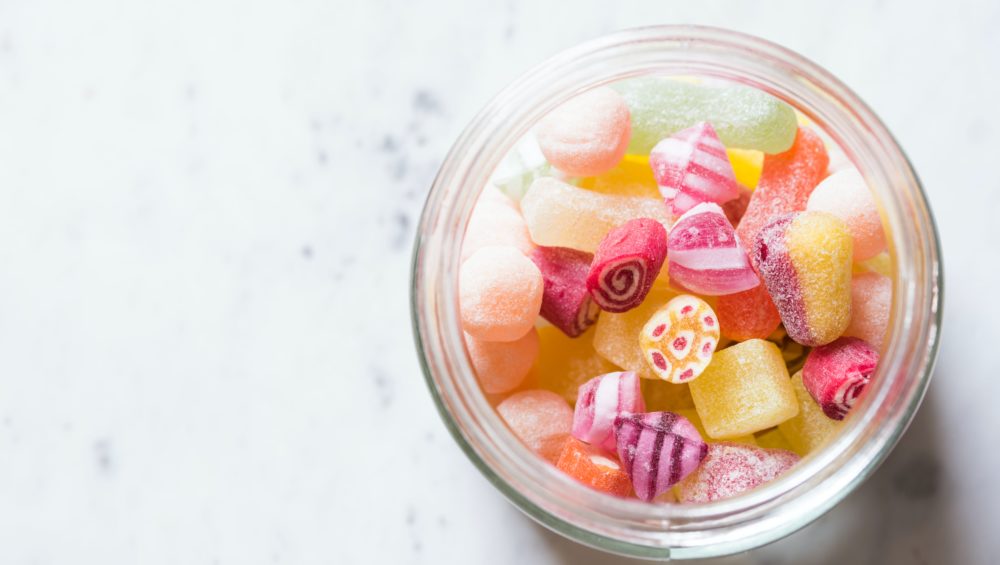Australians are eating in excess of the recommended amount of sugar per day. Here are some healthy of our favourite healthy alternatives to standard table sugar that might help you curb those sugar cravings.
The World Health Organisation suggests that healthy adults who sit within the healthy BMI range should obtain no more than 10% of their diet from free sugars (glucose, fructose, galactose, sucrose) or 50g (equivalent to about 12 tsp) of sugar each day. However, research suggests that currently 35% of an adult’s total daily calories are coming from high-sugar foods and drinks.
A diet high in sugar can lead to weight gain, which in turn increases the risk of chronic health problems such as high blood pressure, type II diabetes and heart disease. But that doesn’t mean you need to completely quit sugar (à la Sarah Wilson 2012). In fact, most health experts agree that quitting sugar isn’t necessary and may lead to cutting out nutritious foods such as fruits and dairy, which may also deplete the body of beneficial nutrients like fibre and calcium.
Regardless of their motivations, many people are considering alternatives to traditional table sugar to hit the sweet spot of their day. So we compiled a list of our favourite sugar alternatives so you can find the best sweetener that works for you.
Our favourite sugar alternatives
STEVIA
Stevia is a plant-based natural sweetener with zero calories, making it a popular option for people who need to avoid sugar as it has been shown to have no effect on blood sugar levels.
Stevia is made from a South American shrub, which has traditionally been used in cooking and as a tea sweetener – this sweetener comes in leaf, tablet, powder, granulated and liquid form. Keep in mind that stevia is 300 times sweeter than white sugar and as such, just one teaspoon is the equivalent of one cup of sugar!
Pros: Natural zero calorie alternative, considered safe for most people.
Cons: Not equal substitute, you will need to use a converter from sugar to stevia, some people notice a bitter-sweet aftertaste.
Uses: Baking, smoothies, tea or coffee sweetener, sprinkled on yoghurt, oats or cereals.
COCONUT SUGAR
Coconut sugar, also known as coconut palm sugar, is a brown and granulated similar to brown sugar derived from the coconut palm tree.
Unlike regular table sugar, coconut sugar has been found to contain iron, zinc, calcium and potassium. It also contains inulin, which may be the reason it has a slightly lower glycaemic index (GI) than regular sugar. Although, it should be noted that despite the additional nutrients, coconut sugar is just as high in calories as regular sugar.
Coconut sugar can be used in place of regular sugar in a 1:1 ratio. Because of the earthy, caramel taste it is great in all kinds of baking, as well as for sweetening hot drinks like tea, coffee, chai and cocoa.
Pros: Higher nutrient profile than regular sugar, slightly lower GI, simple 1:1 ratio, sweet caramel taste.
Cons: Similar calories as regular white sugar.
Uses: All sorts of baking but especially cakes, cookies, bars and slices, as well as sweetening drinks.

MONK FRUIT
Monk fruit sweetener or monk fruit extract is a natural sweetener that is around 100-250 times sweeter than regular sugar but with zero calories.
Even though the monk fruit contains fructose and glucose, these are separated during the processing of the extract and the natural sweetness comes from antioxidants.
Research has shown that monk fruit sweeteners do not raise blood sugar levels and are therefore often recommended to people with diabetes.
Pros: Doesn’t impact blood sugar levels, zero calories, no known negative side effects.
Cons: Some people notice an unpleasant aftertaste, may need to experiment when baking depending on the percentage of monk fruit extract.
Uses: In coffee, tea and hot drinks, mixed into oats, porridge or other breakfast cereals, in baking or blended into a smoothie.
XYLITOL
Xylitol is found naturally in small amounts in a number of fruits and vegetables. It has a very similar taste and look to regular sugar but it has fewer calories and doesn’t raise blood sugar levels.
Just like sugar, xylitol can be used in baking and to sweeten drinks. Because it is so similar to sugar taste and texture, it can be used in the same ratio; however, it can absorb more liquid than sugar so you may need to increase liquid ingredients when baking.
Xylitol has also been found to boost dental health and prevent tooth decay. You can make your own natural mouthwash using xylitol (find the recipe here).
Pros: Lower in calories than sugar, doesn’t raise blood sugar levels, 1:1 ratio with sugar, can be beneficial for oral health.
Cons: May need some experimentation when baking. Highly toxic to dogs so store safely out of reach of pets, call a vet immediately if your dog ingests any xylitol.
Uses: Replace regular sugar in baking and sweetening coffee and tea.
ERYTHRITOL
Erythritol is found naturally in many fruits such as grapes, peaches and pears, as well as in fermented foods such as soy sauce, wine and cheese.
Erythritol comes in either granulated or powdered form; it is slightly less sweet than regular sugar, contains zero calories, doesn’t impact blood glucose levels and has a zero glycaemic index.
Erythritol has been widely used in Japan since the 1990s in lollies, chocolate, yoghurt, jelly, jams and beverages. It is very similar to xylitol (though less sweet) and may be preferred in baking as it doesn’t absorb as much moisture.
Pros: Can use a 1:1 ratio in baking, zero calories and doesn’t raise blood sugar levels.
Cons: Erythritol can sometimes make baked treats taste “cool” if left for too long – eat within a day or two. Some people experience bloating, wind or stomach cramps if they eat too much erythritol.
Uses: Use in baking or to sweeten hot or cold drinks.
Sugar in excessive amounts is not conducive to a healthy lifestyle and should be consumed in moderation. Similarly, sugar substitutes should also be eaten in moderation and in conjunction with a well-balanced diet. If you are incorporating sugar substitutes in your diet as a result of health concerns or personal preference, the staff at Go Vita Ballarat can help find the right solution for you.
At Go Vita Ballarat we have a variety of different sweeteners for various purposes including stevia, coconut sugar, xylitol, erythritol and monk fruit sweetener. You will also find sweeteners such as rapadura sugar, glucose powder, fructose powder, rice malt syrup, barley malt syrup, coconut syrup, agave and local honey at our local Ballarat store.






